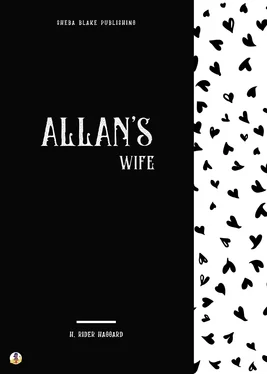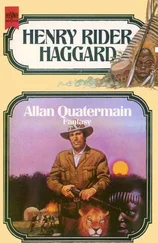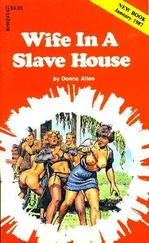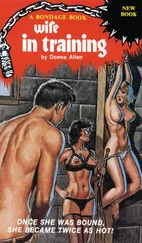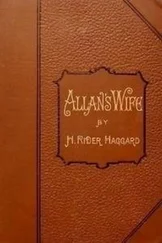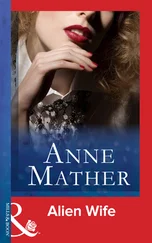H. Haggard - Allan's Wife
Здесь есть возможность читать онлайн «H. Haggard - Allan's Wife» — ознакомительный отрывок электронной книги совершенно бесплатно, а после прочтения отрывка купить полную версию. В некоторых случаях можно слушать аудио, скачать через торрент в формате fb2 и присутствует краткое содержание. Жанр: unrecognised, на английском языке. Описание произведения, (предисловие) а так же отзывы посетителей доступны на портале библиотеки ЛибКат.
- Название:Allan's Wife
- Автор:
- Жанр:
- Год:неизвестен
- ISBN:нет данных
- Рейтинг книги:3 / 5. Голосов: 1
-
Избранное:Добавить в избранное
- Отзывы:
-
Ваша оценка:
- 60
- 1
- 2
- 3
- 4
- 5
Allan's Wife: краткое содержание, описание и аннотация
Предлагаем к чтению аннотацию, описание, краткое содержание или предисловие (зависит от того, что написал сам автор книги «Allan's Wife»). Если вы не нашли необходимую информацию о книге — напишите в комментариях, мы постараемся отыскать её.
Allan's Wife — читать онлайн ознакомительный отрывок
Ниже представлен текст книги, разбитый по страницам. Система сохранения места последней прочитанной страницы, позволяет с удобством читать онлайн бесплатно книгу «Allan's Wife», без необходимости каждый раз заново искать на чём Вы остановились. Поставьте закладку, и сможете в любой момент перейти на страницу, на которой закончили чтение.
Интервал:
Закладка:
“Look, cousin—look at that droll little boy with the big brown eyes; his hair is like a—what you call him?—scrubbing-brush. Oh, what a droll little boy!”
The tall gentleman pulled at his moustache, and, taking Mrs. Carson’s hand in his, began to smooth my hair down with it till I heard her whisper—
“Leave go my hand, cousin. Thomas is looking like—like the thunderstorm.”
Thomas was the name of Mr. Carson, her husband.
After that I hid myself as well as I could behind a chair, for I was shy, and watched little Stella Carson, who was the squire’s only child, giving the children presents off the tree. She was dressed as Father Christmas, with some soft white stuff round her lovely little face, and she had large dark eyes, which I thought more beautiful than anything I had ever seen. At last it came to my turn to receive a present—oddly enough, considered in the light of future events, it was a large monkey. Stella reached it down from one of the lower boughs of the tree and handed it to me, saying—
“Dat is my Christmas present to you, little Allan Quatermain.”
As she did so her sleeve, which was covered with cotton wool, spangled over with something that shone, touched one of the tapers and caught fire—how I do not know—and the flame ran up her arm towards her throat. She stood quite still. I suppose that she was paralysed with fear; and the ladies who were near screamed very loud, but did nothing. Then some impulse seized me—perhaps instinct would be a better word to use, considering my age. I threw myself upon the child, and, beating at the fire with my hands, mercifully succeeded in extinguishing it before it really got hold. My wrists were so badly scorched that they had to be wrapped up in wool for a long time afterwards, but with the exception of a single burn upon her throat, little Stella Carson was not much hurt.
This is all that I remember about the Christmas-tree at the Hall. What happened afterwards is lost to me, but to this day in my sleep I sometimes see little Stella’s sweet face and the stare of terror in her dark eyes as the fire ran up her arm. This, however, is not wonderful, for I had, humanly speaking, saved the life of her who was destined to be my wife.
The next event which I can recall clearly is that my mother and three brothers all fell ill of fever, owing, as I afterwards learned, to the poisoning of our well by some evil-minded person, who threw a dead sheep into it.
It must have been while they were ill that Squire Carson came one day to the vicarage. The weather was still cold, for there was a fire in the study, and I sat before the fire writing letters on a piece of paper with a pencil, while my father walked up and down the room talking to himself. Afterwards I knew that he was praying for the lives of his wife and children. Presently a servant came to the door and said that some one wanted to see him.
“It is the squire, sir,” said the maid, “and he says he particularly wishes to see you.”
“Very well,” answered my father, wearily, and presently Squire Carson came in. His face was white and haggard, and his eyes shone so fiercely that I was afraid of him.
“Forgive me for intruding on you at such a time, Quatermain,” he said, in a hoarse voice, “but to-morrow I leave this place for ever, and I wish to speak to you before I go—indeed, I must speak to you.”
“Shall I send Allan away?” said my father, pointing to me.
“No; let him bide. He will not understand.” Nor, indeed, did I at the time, but I remembered every word, and in after years their meaning grew on me.
“First tell me,” he went on, “how are they?” and he pointed upwards with his thumb.
“My wife and two of the boys are beyond hope,” my father answered, with a groan. “I do not know how it will go with the third. The Lord’s will be done!”
“The Lord’s will be done,” the squire echoed, solemnly. “And now, Quatermain, listen—my wife’s gone.”
“Gone!” my father answered. “Who with?”
“With that foreign cousin of hers. It seems from a letter she left me that she always cared for him, not for me. She married me because she thought me a rich English milord. Now she has run through my property, or most of it, and gone. I don’t know where. Luckily, she did not care to encumber her new career with the child; Stella is left to me.”
“That is what comes of marrying a papist, Carson,” said my father. That was his fault; he was as good and charitable a man as ever lived, but he was bigoted. “What are you going to do—follow her?”
He laughed bitterly in answer.
“Follow her!” he said; “why should I follow her? If I met her I might kill her or him, or both of them, because of the disgrace they have brought upon my child’s name. No, I never want to look upon her face again. I trusted her, I tell you, and she has betrayed me. Let her go and find her fate. But I am going too. I am weary of my life.”
“Surely, Carson, surely,” said my father, “you do not mean——”
“No, no; not that. Death comes soon enough. But I will leave this civilized world which is a lie. We will go right away into the wilds, I and my child, and hide our shame. Where? I don’t know where. Anywhere, so long as there are no white faces, no smooth educated tongues——”
“You are mad, Carson,” my father answered. “How will you live? How can you educate Stella? Be a man and wear it down.”
“I will be a man, and I will wear it down, but not here, Quatermain. Education! Was not she—that woman who was my wife—was not she highly educated?—the cleverest woman in the country forsooth. Too clever for me, Quatermain—too clever by half! No, no, Stella shall be brought up in a different school; if it be possible, she shall forget her very name. Good-bye, old friend, good-bye for ever. Do not try to find me out, henceforth I shall be like one dead to you, to you and all I knew,” and he was gone.
“Mad,” said my father, with a heavy sigh. “His trouble has turned his brain. But he will think better of it.”
At that moment the nurse came hurrying in and whispered something in his ear. My father’s face turned deadly pale. He clutched at the table to support himself, then staggered from the room. My mother was dying!
It was some days afterwards, I do not know exactly how long, that my father took me by the hand and led me upstairs into the big room which had been my mother’s bedroom. There she lay, dead in her coffin, with flowers in her hand. Along the wall of the room were arranged three little white beds, and on each of the beds lay one of my brothers. They all looked as though they were asleep, and they all had flowers in their hands. My father told me to kiss them, because I should not see them any more, and I did so, though I was very frightened. I did not know why. Then he took me in his arms and kissed me.
“The Lord hath given,” he said, “and the Lord hath taken away; blessed be the name of the Lord.”
I cried very much, and he took me downstairs, and after that I have only a confused memory of men dressed in black carrying heavy burdens towards the grey churchyard!
Next comes a vision of a great ship and wide tossing waters. My father could no longer bear to live in England after the loss that had fallen on him, and made up his mind to emigrate to South Africa. We must have been poor at the time—indeed, I believe that a large portion of our income went from my father on my mother’s death. At any rate we travelled with the steerage passengers, and the intense discomfort of the journey with the rough ways of our fellow emigrants still remain upon my mind. At last it came to an end, and we reached Africa, which I was not to leave again for many, many years.
Читать дальшеИнтервал:
Закладка:
Похожие книги на «Allan's Wife»
Представляем Вашему вниманию похожие книги на «Allan's Wife» списком для выбора. Мы отобрали схожую по названию и смыслу литературу в надежде предоставить читателям больше вариантов отыскать новые, интересные, ещё непрочитанные произведения.
Обсуждение, отзывы о книге «Allan's Wife» и просто собственные мнения читателей. Оставьте ваши комментарии, напишите, что Вы думаете о произведении, его смысле или главных героях. Укажите что конкретно понравилось, а что нет, и почему Вы так считаете.
